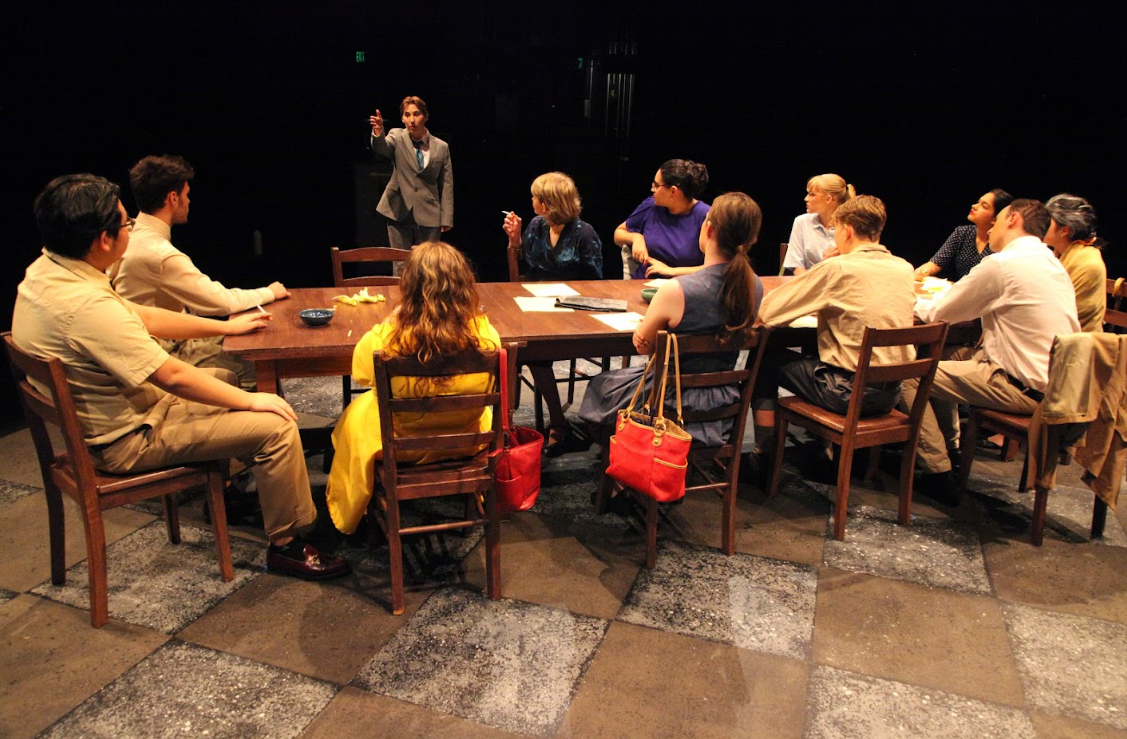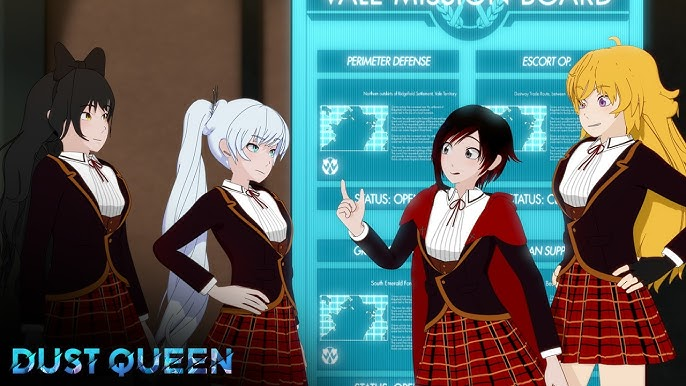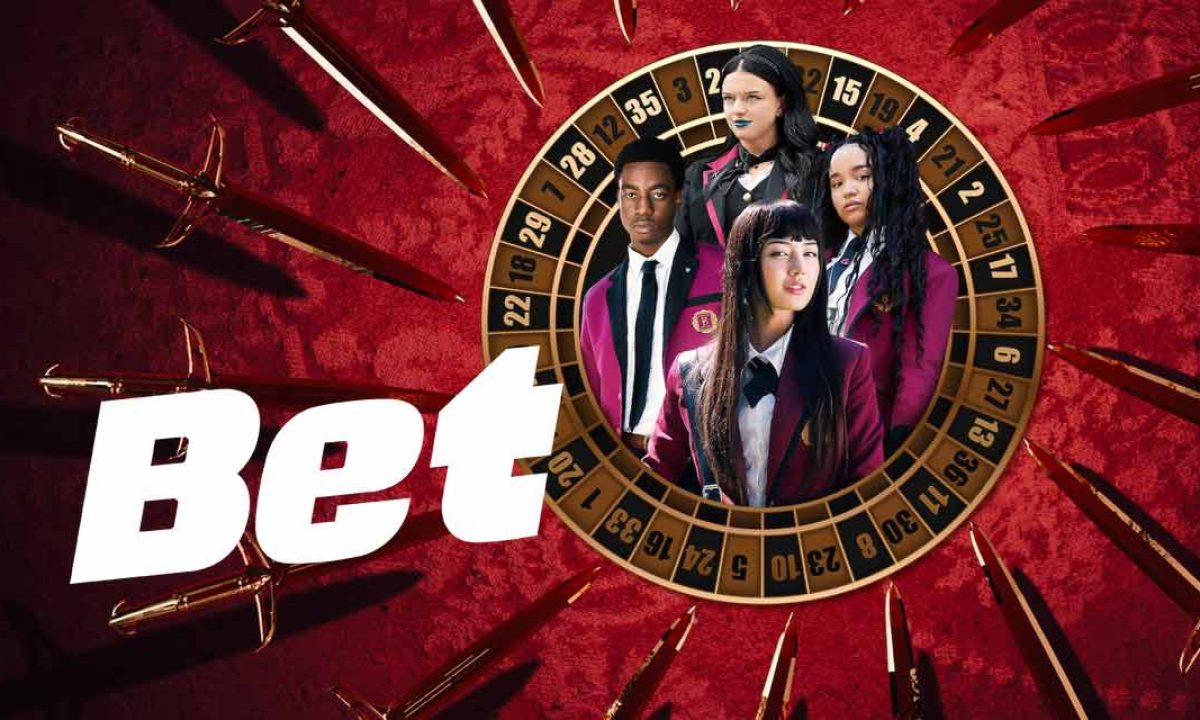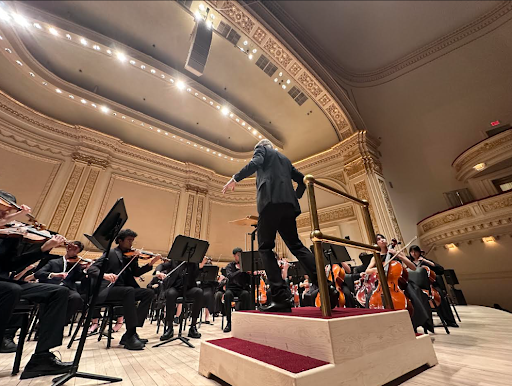His hand suddenly slammed on the table. My heart skipped a beat and I noticeably flinched, as if witnessing a jumpscare.
But this wasn’t a horror movie featuring creepy dolls and supernatural occurrences – it was “12 Angry Jurors,” a play about 12 angry jurors (who would’ve known?) locked in a hot stuffy room where they must unanimously decide the fate of a teenager accused of killing his father with a switchblade. The jurors, all from unique backgrounds, confront their own histories, prejudices and biases through heated and witty debates. The play was held at MIHS April 24-26 and May 1-3 with two casts, Cast Law and Cast Order.
I’ll admit, the play was kind of boring at first. Though the actors put in great effort to highlight the personalities of their characters – and they did a good job because this is a difficult play to act due to the static surroundings – it was hard to be interested in jurors drinking water from the water machine or Juror 2 politely offering gum to Juror 4, which she declined. The speech at the beginning of the play was a little bland, as it was going through all the legalities of the situation, but I suppose it is a necessary aspect before getting into the action. Perhaps the most interesting part was Juror 8 continuously looking out the window.
Initially, the jurors agree that the boy accused is guilty – all except Juror 8. Even in a situation of 11 against one, Juror 8 holds his ground by actively questioning the proposed guilt of the boy. His wittiness and resistance against the flaring tempers (it’s a hot stuffy room, after all) gradually drew in my attention. He, the protagonist, was very cool and inspiring. It takes guts to be the only person in a room to actively defend an opinion that differs from the rest, and Juror 8 was unfazed even when others harshly rebuked his claim. Juror 8 was played by senior Marco McGuire and senior Meredith Weaver in the two casts, respectively.
The play also felt like a detective story – the jurors ran experiments to test the validity of the witnesses’ claims, which was surprising but made the story more interesting. I felt like it was fascinating how the jury approached the case like a puzzle, with Juror 4 and Juror 8 being the main questioners. On the other hand, Jurors 3, 7, 10 and 12 were easily irritated, frustrated with the productivity of these discussions and were stubbornly against looking deeper into the case. I really enjoyed the tensions that resulted from this contrast in thinking and beliefs.
Additionally, MIHS drama put a few twists in the play, differing from the original. The play was split into two parts, with the first set in 1954 and the second set in 2025 (no worries, the only thing that changed was the actors’ clothes). I appreciated this element because it further highlights the importance the play has on viewers, illustrating the consequences of personal bias shaping one’s beliefs. This was most exemplified through Juror 3, who is trapped in his prejudices and broken father-son relationship, and Juror 10, who is an outspoken and dogmatic racist and bigot, saying derogatory things about the accused boy. Juror 3 was especially adamant in proclaiming the boy guilty and stands with his beliefs until the end, making the play more enticing. Seniors Kyle Gerstel and Colin Dowdy played Juror 3 and junior Tiger Yang and senior Hunter Maughan played Juror 10 respectively in the two casts. Finally, the last scene was masterfully remixed with much more excitement. It made my mind writhe with dread as I awaited what I thought would ensue … Juror 8 and Juror 3 were alone in the room – what could possibly happen?
Though written in 1954, “12 Angry Jurors” is still very relevant today. After watching, I felt more aware of the dangers of not looking beneath the surface, going along with the bandwagon and letting prejudices and biases influence one’s judgement.









